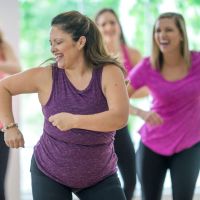How Exercise is Helping to Beat Loneliness
Over the past few year, millions have understandably been hit by feelings of loneliness, but as the country has reopened and people got back to their normal lives, many still remain with feelings of isolation that they have found difficult to shake.
Our latest report explores how loneliness continues to impact people across the UK, and what activities millions have turned to, including exercise, in order to alleviate these concerns.
Combatting anxiety and loneliness with exercise
To fight back against negative feeling and anxiety, many people have found solace in exercise. It’s been well documented how beneficial regular activity can be for both your mental and physical health, and our new study reinforces that fact again, especially in relation to years of lockdowns and isolation.
According to our research, 48% of people still often or regularly feel lonely since pandemic restrictions were lifted. 9 in 10 people across the UK have said that since the pandemic, exercise has helped reduce these feelings of loneliness, improved their mental/physical health, increased feelings of calm, made them feel more energized and connected them to communities and friends.
In terms of specific activities, 54% found walking or running in the open air the best remedy for reducing feelings of anxiety and loneliness. This was only beaten by socializing with friends and family (67%), and listening to music or reading (59%).
Exercising in a gym or leisure centre was also a popular choice (30%), as the increase in attendance for our own exercise classes demonstrates. An analysis of our 10 most popular fitness classes revealed that attendance levels have returned to pre-pandemic numbers, with people striving to get back to normality.
Based on search and social media trends, our top 10 most popular classes have also all increased in search demand compared to last year, with aqua aerobics up by 89%, group cycle up by 88% and Zumba up by 83%.
Full year-on-year increases of the top 10 Better fitness classes are shown below, along with their popularity on TikTok, a platform where millions are going to find fitness inspiration and guidance:
|
Fitness Class |
% Search Popularity Increase |
TikTok Views |
|
Aqua Aerobics |
89% |
3.8 million |
|
Body Conditioning |
81% |
3.1 million |
|
Circuit Training |
49% |
21.6 million |
|
Dance Fitness |
60% |
161.4 million |
|
Group Cycle |
88% |
2.2 million |
|
HIIT |
No change |
884.5 million |
|
Pilates |
49% |
968.9 million |
|
Power Pump |
26% |
191.2 million |
|
Yoga |
49% |
11.9 billion |
|
Zumba |
83% |
6.1 million |
1 in 5 18-24 year-olds often feel lonely
With mental health struggles rife in the younger population, it may come as no surprise to see that those aged 18 to 25 say they are struggling the most with loneliness and anxiety. In our survey, 1 in 5 18-24 year olds said they often feel lonely, with 1 in 3 saying they are either often or occasionally lonely.
Fortunately, 18-24 year-olds are also the age group most likely to find exercise helpful for reducing their loneliness and improving their mental health.
Wayne Harvey, Better’s Cardiff Fitness Instructor, has noted how members visiting his local gym are paying more attention to their mental health:
“My overriding observation of new members is that there seems to be a significant rise in those coming in with mental health issues. We are increasingly aware of customers’ underlying issues and ensure we empathise with the difficulties they face. We want to inspire them and convince them of the benefits of fitness.
“Online classes had been popular throughout lockdown but as soon as gyms opened back up we saw a trend towards people returning to exercise in person because they benefit from a more social environment and working out with others seems to help people's motivation.”
Steve Douglas, a Better Personal Trainer from London agreed, saying:
“When we re-opened, the number of members who freely spoke about their mental health was really noticeable. They reported how much they had struggled during lockdown, some unfortunately admitting to serious mental health issues and setbacks. Members were so happy to be back in person and for life to be getting back to some semblance of normality.”
“Many of our members openly admitted that they were back in the gym as much for their mental health as their physical health. While for some returning to the gym has been for the physical benefits, for many the sense of togetherness and community has huge value along with the social aspect of being a gym regular mixing with other regulars.”
As our previous research into body confidence across the country found, taking care of our physical and mental health is vital for creating a stable and healthy balance for our overall wellbeing. Being around others – whether family, friends, your local community, or even your fellow gym members - clearly has a positive and healthy impact on our mental health, and is now something we can do a lot more as restrictions are lifted.

